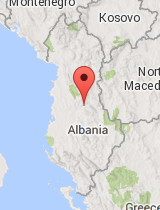Medical Summary
The health risk information presented here is summarized from Shoreland Travax®, a decision-support tool used by health care providers to perform a detailed health risk analysis based on specific locations, individual travel styles, and traveler risk behaviors. Travax provides practitioners current, independently researched malaria risk and prevention recommendations in a map-based format that goes beyond the annual WHO and US CDC statements included here. Not included here are current reports from Travax of disease outbreaks or environmental events that may pose elevated risks to travelers’ health and safety. The Providers section of this site offers a directory of health care providers who utilize Shoreland Travax for travel health counseling. Learn more about the detailed reports and maps available from these practitioners (includes links to samples).
General Information
Albania is a developing nation classified as upper middle income. Located in southeastern Europe along the Adriatic Sea (north of Greece and south of Montenegro and Kosovo), the climate is classified as dry summer.
Vaccinations
Routine vaccinations are essential due to a persistent global rise of vaccine-preventable diseases (especially markedly high rates of diphtheria, pertussis, and measles). Prior to travel, travelers should be up-to-date with the age-appropriate and risk-based routine vaccinations recommended by their home country, which may include:
- COVID-19
- H. influenzae type B (Hib)
- Hepatitis A
- Hepatitis B: Protection is especially important for those at increased risk.
- Herpes zoster
- Human papillomavirus
- Influenza
- Measles, mumps, rubella: A single early dose is recommended for travelers aged 6-11 months.
- Meningococcal
- Pneumococcal
- Polio
- Rotavirus
- Tetanus, diphtheria, pertussis: Tdap preferred; consider an early pertussis booster for high-risk travelers.
- Varicella
Yellow Fever
See also: Library article for Yellow Fever
Although yellow fever does not occur in Albania, an official yellow fever vaccination certificate may be required depending on your itinerary.
- Requirement: A certificate proving yellow fever vaccination is required for travelers aged ≥ 1 year coming from countries with risk of YF transmission. This does not apply to airport transit stops (no exit through immigration checkpoint) in risk countries.
Other Vaccines
Depending on your itinerary, your personal risk factors, and the length of your visit, your health care provider may offer you vaccination against rabies or tick-borne encephalitis.
Malaria
See also: Library article for Malaria
The following is current information as reported by the World Health Organization (WHO) and the US Centers for Disease Control (CDC):
WHO—International Travel and Health (current online update, Country List)
No statement given.CDC—Health Information for International Travel (current online edition)
No malaria transmission.
Other Concerns
Travelers' Diarrhea
See also: Library article for Travelers' Diarrhea
Moderate risk exists throughout the country, with minimal risk in deluxe accommodations. Community sanitation and food safety measures may be inadequate. Some itineraries (e.g., remote destinations, austere accommodations) and activities (e.g., ecotourism, eating street or local-market food) further increase risk.
Travelers should observe food and beverage precautions, which reduce the likelihood of illness.
Travelers should carry loperamide for self-treatment of diarrhea and, if risk is moderate to high, an antibiotic to add if diarrhea is severe. Consult a knowledgeable health care provider regarding which antibiotic is appropriate for you and most effective for your destination.
Other Food-Borne Illnesses
Precautions to prevent brucellosis may be needed.
Insect- and Arthropod-Borne Diseases
Leishmaniasis, Lyme disease, Rocky Mountain spotted fever, West Nile virus may pose a risk. Personal protective measures are important.
Other Disease and Health Risks
Additional concerns include air pollution, anthrax disease, Crimean-Congo hemorrhagic fever, hantavirus, hepatitis C, leptospirosis, marine hazards, sexually transmitted infections.
Safety and Security
See also: Library article for Safety and Security
Key Safety Risks
- Road conditions and traffic collisions
- Petty crime
- Theft of vehicles
- Natural disasters
Key Security Threats
- Risk of violent protests
- Landmines
- Explosions in public places
Emergency Contacts
The police emergency number is 129; local operators may not speak English.

